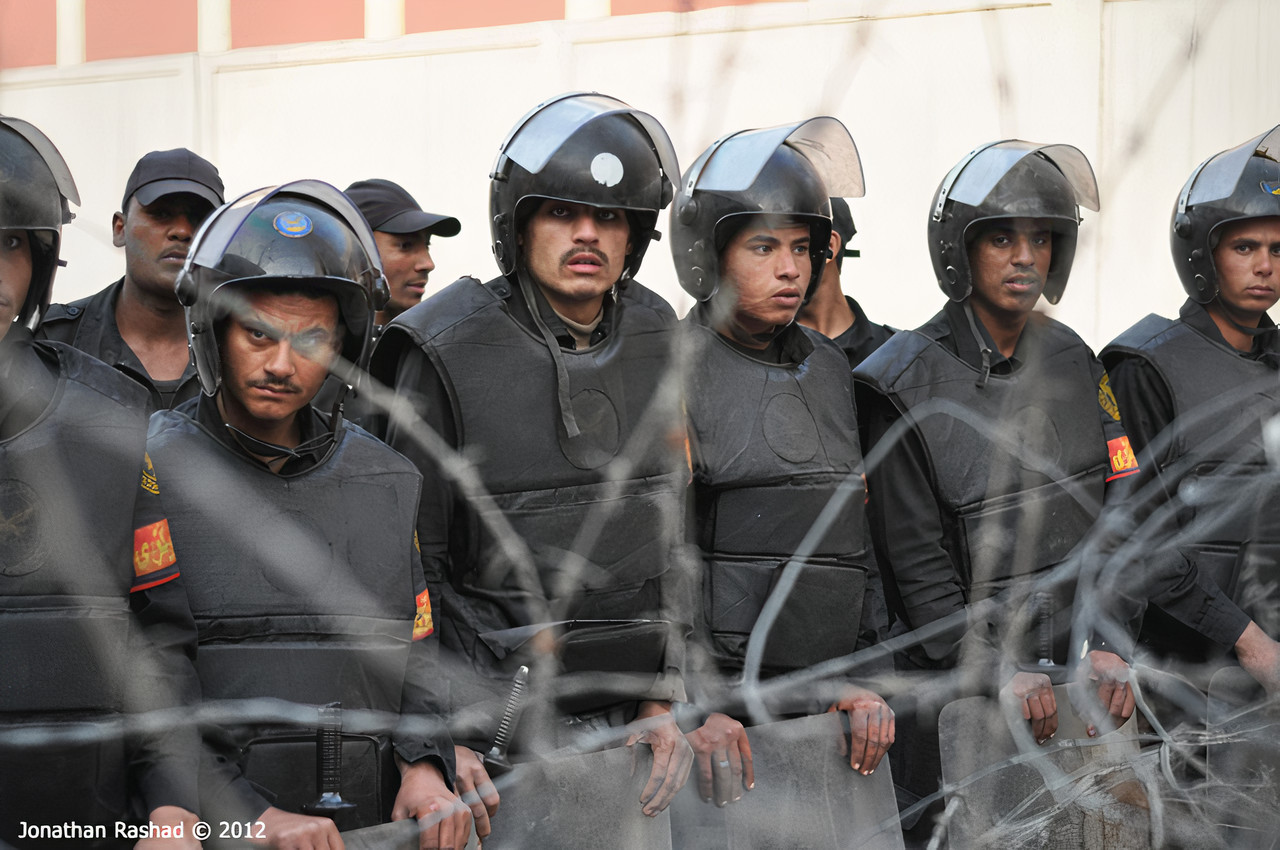Egypt’s Crackdown on EIPR: Instrumentalizing Counterterrorism to Silence Dissent
Egypt’s recent crackdown on a prominent civil society organization provides a window into how the country has been misusing counterterrorism to silence dissent.

Published by The Lawfare Institute
in Cooperation With

On Nov. 3, a group of foreign ambassadors and diplomats representing 12 countries and the European Commission gathered at the offices of the Egyptian Initiative for Personal Rights (EIPR). The group was present to discuss the state of human rights and civil society in Egypt following a request made by one of the countries. As a preeminent independent civil society organization that has been legally operating in the country since 2002, EIPR is widely respected and sought after for its knowledge production, advocacy and litigation on key issues from health to the economy to criminal justice. The meeting—which took place within the mandate of the foreign diplomatic corps’ engagement with Egyptian stakeholders—was not the first of its type and was reported on publicly by both the governments in question and EIPR.
It came as a shock when less than two weeks later, on Nov. 15, Egyptian security forces raided the home of EIPR’s administrative manager, Mohamed Basheer, and arrested him. He was held at a state security-sector facility for 12 hours and questioned about the recent meeting between EIPR and the foreign diplomats. Thereafter, he was transferred to the Supreme State Security Prosecution (SSSP)—a prosecutorial branch that has jurisdiction over many crimes, including those involving national security and terrorism. Basheer was accused of a number of charges, including joining a terrorist organization. In the days that followed, Basheer’s colleagues Karim Ennarah, the head of EIPR’s Criminal Justice Unit, and Gasser Abdel-Razek, the organization’s executive director, were arrested and ordered into pretrial detention in the same case, pending similar charges.
Following widespread and global condemnation from the international community—including from U.S. President-elect Joe Biden’s nominee for secretary of state, Antony Blinken; the European Union External Action Service; and countries ranging from Argentina to Canada and Norway—the three men were released on Dec. 3. Although their release was a welcome, rectifying step and a reminder of the power of the international policymaking community’s coordinated public engagement on rights issues, the story does not end there.
On Dec. 6, a terrorism circuit court upheld the prosecutor-general’s decision to freeze the assets of the Basheer, Ennarah and Abdel-Razek in the absence of due process. Prior to the verdict, the presiding judge denied lawyers’ access to the justification memo and paperwork for the freeze; he also denied them the right to present a pleading or defense. Later that day, the same terrorism circuit court renewed the pretrial detention of Patrick George Zaki, another EIPR staff member who had been arrested in a separate case in February 2020.
For many observers, the Egyptian authorities’ crackdown on one of the country’s most renowned and internationally recognized civil society organizations seemed absurd. It sent a message that informing and advising the work of foreign diplomats—most of them Egyptian allies—could be criminal. It described this and other EIPR activities as “terrorism”—a designation that is particularly difficult to square since, on numerous occasions, the authorities themselves had invited EIPR to consult on Egyptian government initiatives.
Yet the authorities’ most recent actions are also the natural culmination of the Egyptian government’s use of counterterrorism to silence dissent over the past several years. Since 2013, the Egyptian authorities have increasingly armed themselves with an expansive definition of “terrorism” and a complementary legislative toolbox. Their actions have involved passing a Counter-terrorism Law, a Terrorist Entities Law and a Terrorist Funds Law; normalizing the role of state security in the prosecutorial process through the rise of the SSSP; accusing lawyers, journalists and human rights defenders of joining terrorist organizations; and adding individuals who are not terrorists to the country’s official terrorist list. Most recently, on Nov. 23, prominent blogger and activist Alaa Abdel Fattah and his attorney, human rights lawyer Mohamed el-Baqer, were designated as terrorists and added to the list for a five-year period. International organizations, coalitions and experts have raised alarm bells, but many foreign governments—particularly allies in the fight against terrorism—have looked the other way or, in some cases, lauded Egypt for its counterterrorism efforts without caveat.
In April 2017, the international community was stunned when human rights lawyer Mohamed Ramadan was sentenced to 10 years in prison under the Counter-terrorism Law. Now, more than three years later, Ramadan is in pretrial detention on terrorism charges due to a third case that he was included in despite spending the maximum two-year pretrial detention period in an entirely different case. Ramadan’s story is not an aberration. Thousands have faced similar fates. For many observers, stories that at one time appeared shockingly unjust have now become all-too-common headlines.
There is no doubt that states have both a right and a duty to protect individuals under their jurisdiction from terrorism. But there is also no doubt that the measures being taken in response to this threat are increasingly harming human rights in a manner that violates international law and is counterproductive to the fight against terrorism. When Egypt misuses counterterrorism to prosecute peaceful individuals, it cries wolf on the threat of real terrorism by watering down its legal definitions and weakening its domestic framework. All the while, the government’s actions take attention and resources away from actual terrorist threats that Egypt may be facing. These actions leave the country significantly less secure in the process.
In a recent piece for Just Security, UN special rapporteurs Mary Lawlor and Fionnuala Ní Aoláin contextualized the EIPR crackdown in its global context and called on UN member states and the UN to speak in one voice on counterterrorism and human rights. Similar actions helped secure the release of three innocent men in the EIPR case. However, their assets remain frozen, the charges against them have not been dropped, overly broad terrorism laws are on the books and thousands remain in pretrial detention on terrorism charges. It will be up to Egypt’s allies—particularly those who provide funding and resources toward its fight against terrorism—to consistently convey why Egypt’s misuse of its terrorism framework is counterproductive to any legitimate and effective counterterrorism policy.





